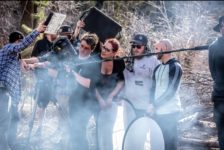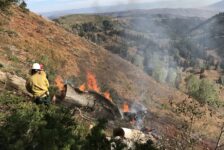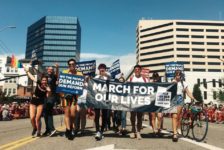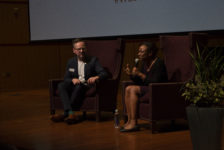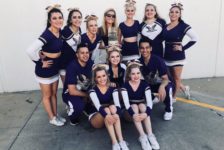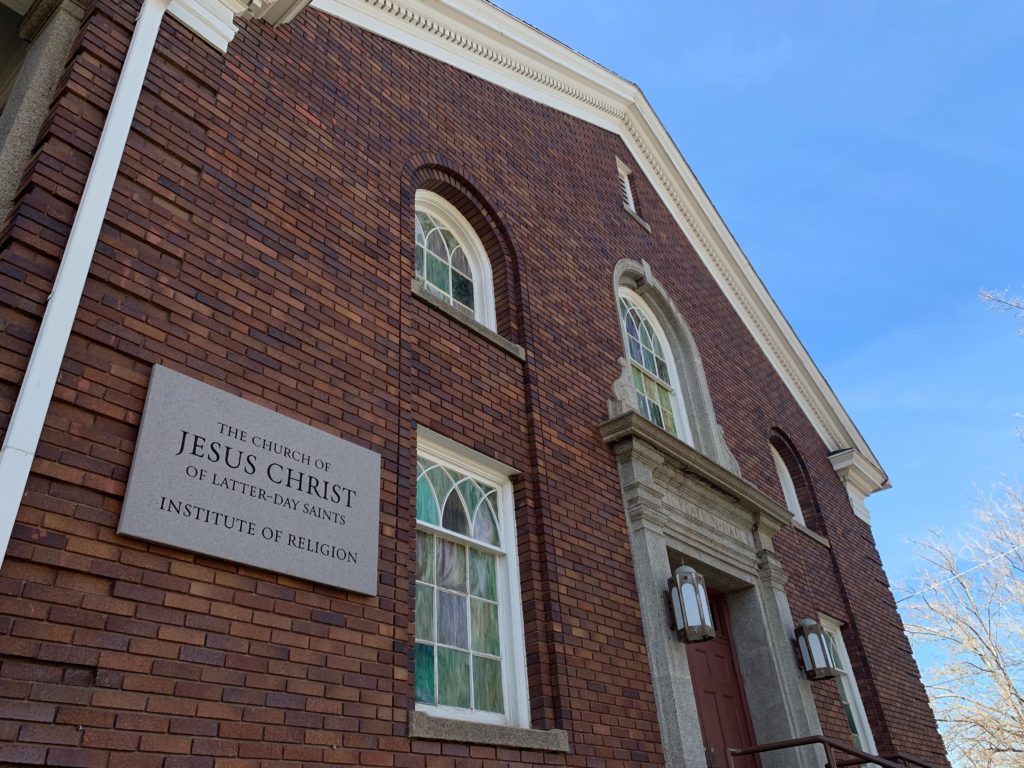
Westminster College prides itself on its diversity efforts. But some students say that within those efforts of being more inclusive to all genders, races and sexual orientations, religion is left out of the conversation.
Practicing religious sensitivity
Kehaolani Pati, coordinator of student involvement, leadership and orientation, works with student faith-based clubs. She said sometimes students who are not members of those clubs have biases against those who are, particularly because in Utah the dominant religion– The LDS faith– can make other religions seem out of the norm.
“When we hear something that is out of the norm or unconventional or different from the majoritarian religion and culture, we tend to have assumptions and questions,” she said. “In regard specifically to faith-based groups, I think that happens all around us all the time.”
Pati said students need to practice sensitivity when talking about religion and be mindful of stereotypes.
“We all make assumptions, and I want to talk about the impact […] on the folks that are targeted, that’s important,” Pati said. “I think recognizing that something happened is good and I think we need to check our biases in terms of inclusivity and equity.”
The validity of faith-based clubs is not up for debate — all that matters is that they are a positive force on campus, Pati said.
“Does this club have intentions to harm anyone? No. Is it inclusive, can anyone join? Yes. Are they planning anything that would hinder anyone’s experience? No,” she said. “Those are very basic questions, but being able to ask ourselves that and not just ask, ‘What’s normal?’”
Although some students have biases about certain religions, Pati said overall Westminster is a very inclusive campus.
“In my experience I’ve seen very inclusive initiatives and students and faculty,” she said. “And that’s powerful. I didn’t see that in my undergrad experience. I’ve experienced inclusivity here, and when there isn’t we address it, we have a conversation and we treat it as a learning opportunity.”
LDS students say they face bias from peers
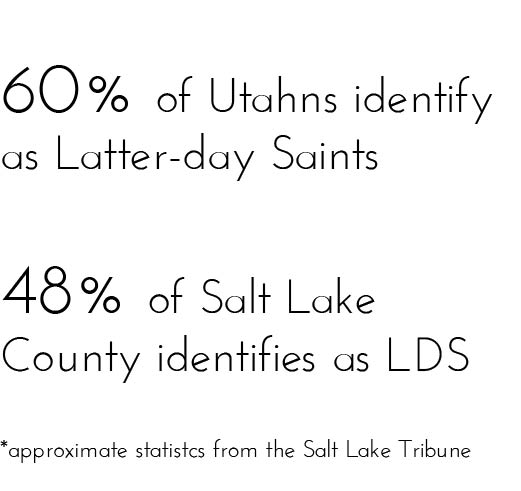
As of 2018, 62% of Utahns identify as Mormon, according to the Boston Globe. However, Salt Lake County is less than half LDS, according to that same article.
At Westminster, Latter-day Saints are not the majority which can create some tension for the students who identify as Mormon, said Hudson Schmucker, a senior studying economics and finance.
Schmucker, former president of the Latter-day Saint Student Association, said part of his responsibilities was helping LDS students at Westminster find community and participate in events that align with their values.
“I made sure everything was going okay for LDS students on campus and be a resource for them in a religious framework and otherwise,” he said. “The goal [of LDSSA] is to provide community to LDS students and anybody else. We do events that are wholesome and fun. Hopefully we provide a good, loving environment for anyone who wants to be part of it.”
Schmucker said conversations about religion often feel taboo and are not being included in diversity initiatives at Westminster — aside from in the Office of Global Peace and Spirituality.
“I love how important diversity is here, but — and this might be some of my bias as someone who is religious — I feel like in our context of diversity, religion gets left out a lot,” he said. “I’ve talked to other LDS students who feel that way.”
Schmucker said including religion in conversations about diversity is important because many students have biases about religion, yet many students aren’t engaging in those conversations.
“One of the big reasons diversity is important is to help eliminate bias and understand where other people are coming from,” Schumcker said. “That includes the religious aspect of diversity, but it’s an important part of diversity on our campus that gets overlooked. We don’t think about [religion] as much as we think about other aspects of diversity.”
Some students don’t want to engage because of their past negative experiences, but generalizing those experiences is a mistake, Schmucker said.
“We’re in Salt Lake, which has a very concentrated LDS population, but Westminster is very contrary to the general culture of Latter-day Saints,” he said. “A lot of people — and honestly it’s been mostly professors in my experience — have had negative experiences with a member of my faith. And then that experience gets generalized.”
Schmucker said everyone benefits when diverse perspectives are considered in religious initiatives. When one idea is dominant — the way the LDS faith is dominant in some areas of Utah — the religious message gets distorted.
“Our beliefs become what they’re supposed to be when we engage with people of different backgrounds,” he said.
Confusion around Christian clubs complicates getting approval
In order to become a club at Westminster, a representative needs approval from the leaders of established clubs. This can be complicated when someone is trying to get a club approved that has ties to Christianity, said Micka Enriquez, president of Intervarsity Christian Fellowship.
Enriquez, a senior studying psychology, recently witnessed the approval process for another club with different ties, CARP. As club leaders debated if CARP should be allowed to exist at Westminster, Enriquez noticed the bias of some of her peers.
“I thought, ‘I wonder if this is what happened when our club was proposed,’” she said. “The proposal process can be intimidating [for faith-based clubs]. It’s the bias toward Christianity, thinking that it’s exclusive or hateful.”
Intervarsity Christian Fellowship is non-denominational and meets two times a week for Bible study and once a week for a group activity. The purpose of the club is to build community among Westminster Christians, and it’s also a resource for anyone curious about Christianity, according to Enriquez.
“Being Christian on campus can feel pretty lonely,” she said.
Enriquez said she has encountered some confusion about her club, and some negative perceptions about her faith. On a campus-wide level, religion isn’t prioritized in diversity efforts as much as other identities are, she said.
“One thing I would love to see is for religious clubs to be more involved with each other, and for more students to explore the religious clubs on campus,” Enriquez said. “Go to spaces where [religious] conversations are encouraged and safe.”
Enriquez welcomes anyone to Intervarsity Christian Fellowship meetings and said she hopes more interfaith conversations amend the confusion.
“We’re not a sports club although we do play volleyball a lot,” she said. “We’re nice people, come say hi to us.”
Some students say they avoid religion intentionally
Courtney Cheney is a senior studying communication who was raised within the church of Jesus Christ of Latter-day Saints. But she said she left quickly after graduating high school.
“It was not a healthy relationship for me anymore,” she said. “Now I consider myself unaffiliated with the religion.”
Cheney said she understands the push to include religion in diversity efforts, but for her it was important to that religion was not a major part of her college experience.
“When I came here, I didn’t want that to be part of my experience,” she said. “I chose to not affiliate with religion and that’s been really good for me.”
Cheney said she has noticed a lot of misunderstanding around the doctrine of the LDS faith, and has had conversations with students to try and clear up the misinformation.
“There are definitely biases,” she said. “There are people who are uninformed or informed incorrectly about the church [of Latter-day Saints] who judge members because of fallacies that they believe. They don’t take the time to understand.”
Cheney said overall Westminster is taking the right steps to be religiously inclusive.
“The religious culture and climate is evolving toward acceptance of differing views,” she said. “It’s really about inclusivity and love. That’s what I’ve seen.”
Courageous Pluralism is more than conversations
Westminster is among the colleges participating in a movement called, “Courageous Pluralism.” The goal is to encourage conversations among people of different religious backgrounds to lower the rates of hate crimes, the Deseret News reported.
Rebecca Blanton is a junior custom major and an employee at the Office of Global Peace and Spirituality, which received a grant from the Interfaith Youth Core for an 18-month project on Courageous Pluralism.
“The project is focusing on educational equity for international and DACA students,” she said. “Religion is an identity. We need to work to create spaces where people can explore religious experiences and have conversations, but we need to take it further and actually address inequity through the lens of coming together.”
Blanton said courageous pluralism is about more than interfaith conversations or coexisting.
“On our campus there’s a lot of experiences with the LDS faith, particularly among the LGBTQ+ community, where people have had inequitable treatment due to the power that comes from having a dominant religion,” she said.
Blanton said the fact there is one dominant religion in Utah affects the interfaith initiatives at Westminster.
“When LDS students come to our campus, they’re the minority,” she said. “But it’s complex because if they go anywhere else that’s not the case, and there’s power that comes with that. Christian and LDS students have very real experiences of re-evaluating that privilege and having conversations about the pain their faith has caused.”
Religious diversity is more complicated than including different faith backgrounds, Blanton said.
“Religion interacts with our other identities,” she said. “Two people might both identify as Christian, but whether their upper- or lower-class, a woman, or disabled, or speak English as their primary language, that’s going to affect how they interact with their faith. Religious diversity is about understanding that.”
Mormons are not the only ones entering the conversation with a lot of power, Blanton said.
“Sometimes folks that are white and secular tend to not value the religious and cultural and spiritual identities of those who are not white and identify and religious,” she said. “There’s a power that comes from white secularism that people should be aware of. We need to explore these nuances.”
*Disclaimer: Courtney Cheney is a former staff reporter for The Forum.
*Rebecca Blanton said she is sharing her personal thoughts, not representing the GPS office.

